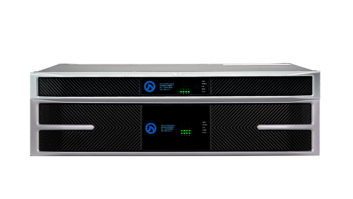The New NSCA University
Jan 17, 2006 4:14 PM
At NSCA Expo 2006 in March, NSCA will unveil a new way of learning in the commercial electronic systems industry. In response to a growing need of new, expanded, and more diverse education for all systems professionals, NSCA training and certification programs have been organized to offer current and future participants more convenience and greater educational value.
“There is a critical need for training and certification at all levels in our industry,” says Brad Nelson, NSCA board member and president of Sound Solutions Northwest. “We structured the new NSCA University colleges so that anyone can build or expand their knowledge of a particular field or fields. The new curriculum provides customized education to all levels of experience.” The NSCA University curricula will provide educational and career growth opportunities for every employee of a commercial electronic systems company. Administrative support, sales, techs and installers, managers, and executives will all find complete training programs that were created by leading industry subject matter experts. Consultants, architects, system operators, and other allied professionals will also benefit from world-class NSCA training programs.
NSCA University now offers six new colleges: Project Management, Systems Sales, System Design, Technical Knowledge, Business, and Allied Professionals. Each college is comprised of best practices, skills, and information that are tailored to the demands of the respective discipline. Industry professionals may achieve a completion certificate from any of the NSCA University colleges by accumulating a predetermined number of Learning Units (LU) within the college(s) of choice. You complete Learning Units by attending the online or in-person instructional courses offered by a college.
To increase the convenience of acquiring LUs, NSCA will partner with industry-leading manufacturers, consulting firms, and other associations and technical education providers to offer pre-approved curricula as NSCA University Learning Units. “We also wanted the new curriculum and learning unit program to work harmoniously with training and certification provided by our esteemed education partners. Through collaboration with organizations such as Syn-Aud-Con, Enterprise Performance Consulting, and select manufacturers, we ensure that electronic systems professionals receive the most advanced training and obtain proper recognition of their achievements.” Nelson says.
In addition, NSCA will track all courses taken since 2003 and apply LUs as appropriate for those participants. NSCA C-SI and C-EST credentials may also be renewed by acquiring 12 or 24 Learning Units, respectively. As required, C-SI and C-EST certifications must be renewed every three years. The new Learning Unit program provides more flexibility for certified individuals to maintain their credential status.
“NSCA’s Education Committee is providing the framework for the next generation of NSCA education. The new colleges and Learning Unit program are unlike any other training and certification in our industry, and provide education at all levels, for all professionals,” says Chuck Wilson, NSCA executive director. “Our job is to provide professionals in the commercial electronic systems industry with the knowledge and resources to grow their business and be successful. Providing the most diverse education, delivered by the industry’s preeminent instructors is a major step toward helping systems professionals achieve their goals.”
For more information, visit www.nsca.org








